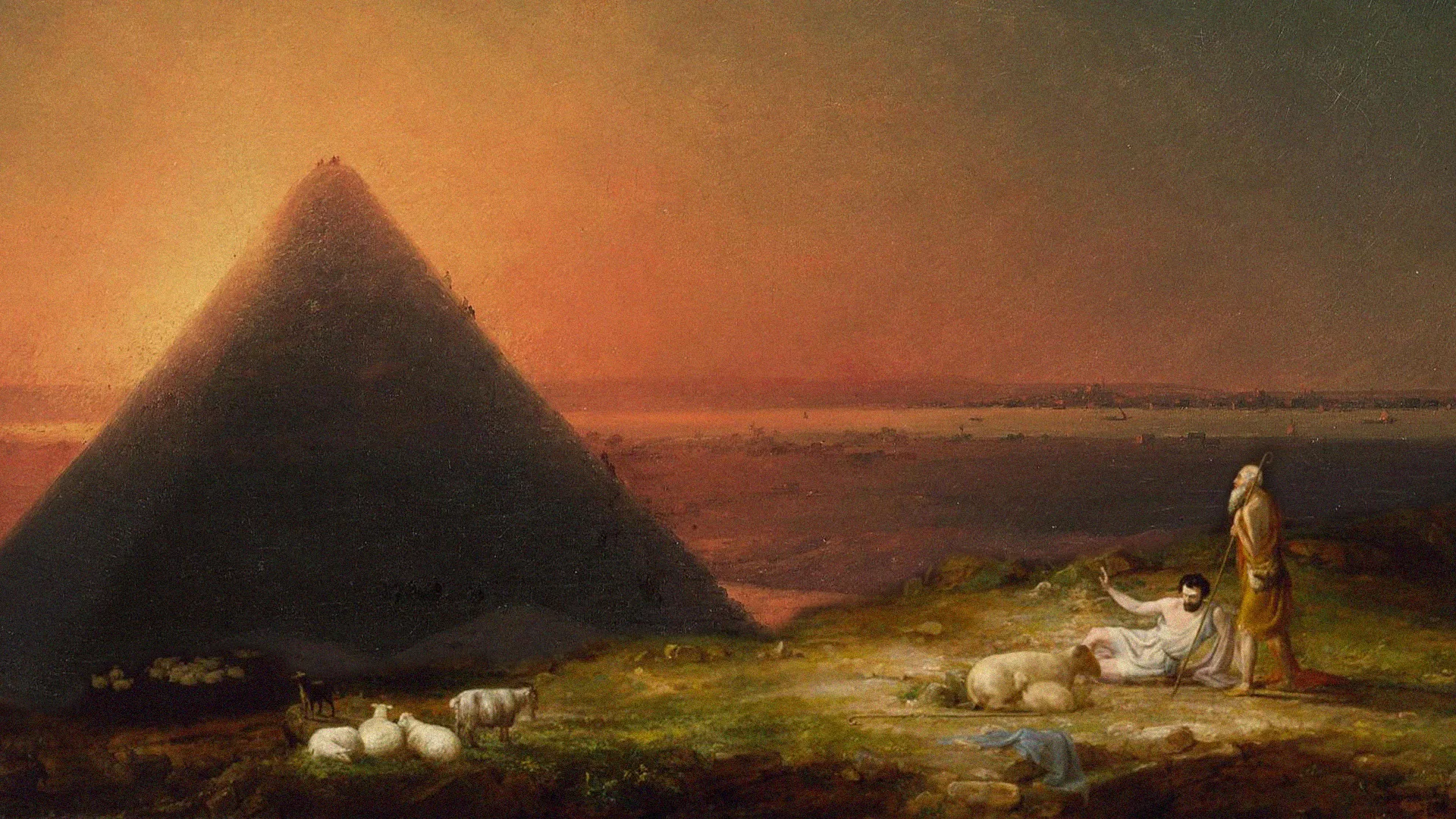
How the shepherds upended Egyptian power.
Those familiar with the Bible know how to imagine Pharaoh of Exodus: heart-hardened as he heard from Moses and Aaron, “Let my people go.” However, we don’t often think about how some words spoken centuries later may have been even more repulsive to him:
There were shepherds out in the field, keeping watch over their flock by night. And an angel of the Lord appeared to them, and the glory of the Lord shone around them. (Luke 2:8–9, ESV throughout)
Maybe what we need to understand about the Christmas story is how it would have rattled the pyramids.
The Joseph we think about this time of year is Joseph of Nazareth, the adoptive father of our Lord Jesus. But a much earlier Joseph lingers in the background of the familiar scene in Luke 2. In Genesis 46, this Joseph—a key figure in Pharaoh’s court—brought his long-lost, now-found family to Egypt to save them from famine. Joseph told them,
When Pharaoh calls you and says, “What is your occupation?” you shall say, “Your servants have been keepers of livestock from our youth even until now, both we and our fathers,” in order that you may dwell in the land of Goshen. (vv. 33–34)
Joseph seemed to be coaching them to reassure Pharaoh that they were coming not to take over, but merely to carry out their occupations without disrupting Egyptian life. The Bible tells us why: “Every shepherd is an abomination to the Egyptians” (v. 34).
This lowly occupation that was an abomination to the Egyptians becomes a recurring theme in the biblical story. Later, Moses (who, like Joseph, had been an insider in Pharaoh’s court) fled for his life and, before his encounter with God in the burning bush, spent extended time …


